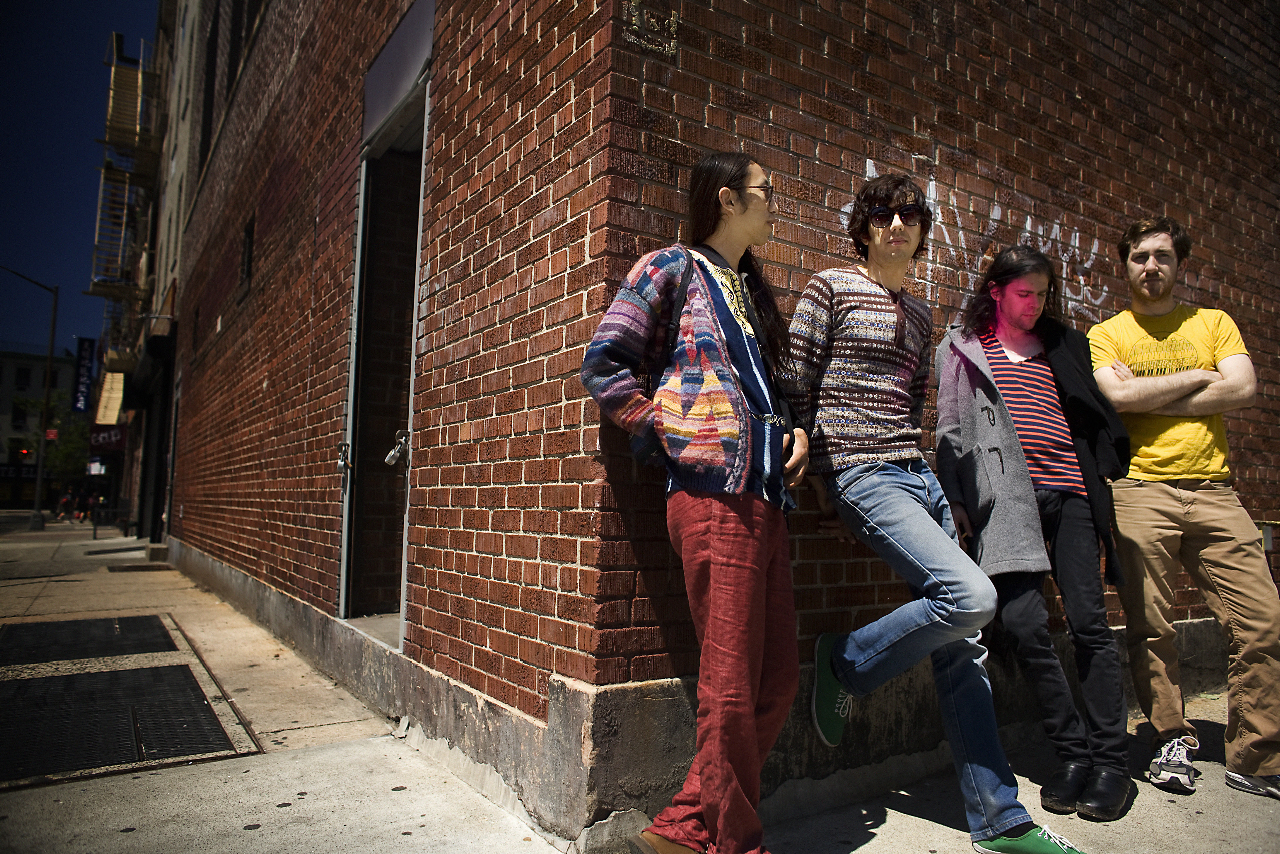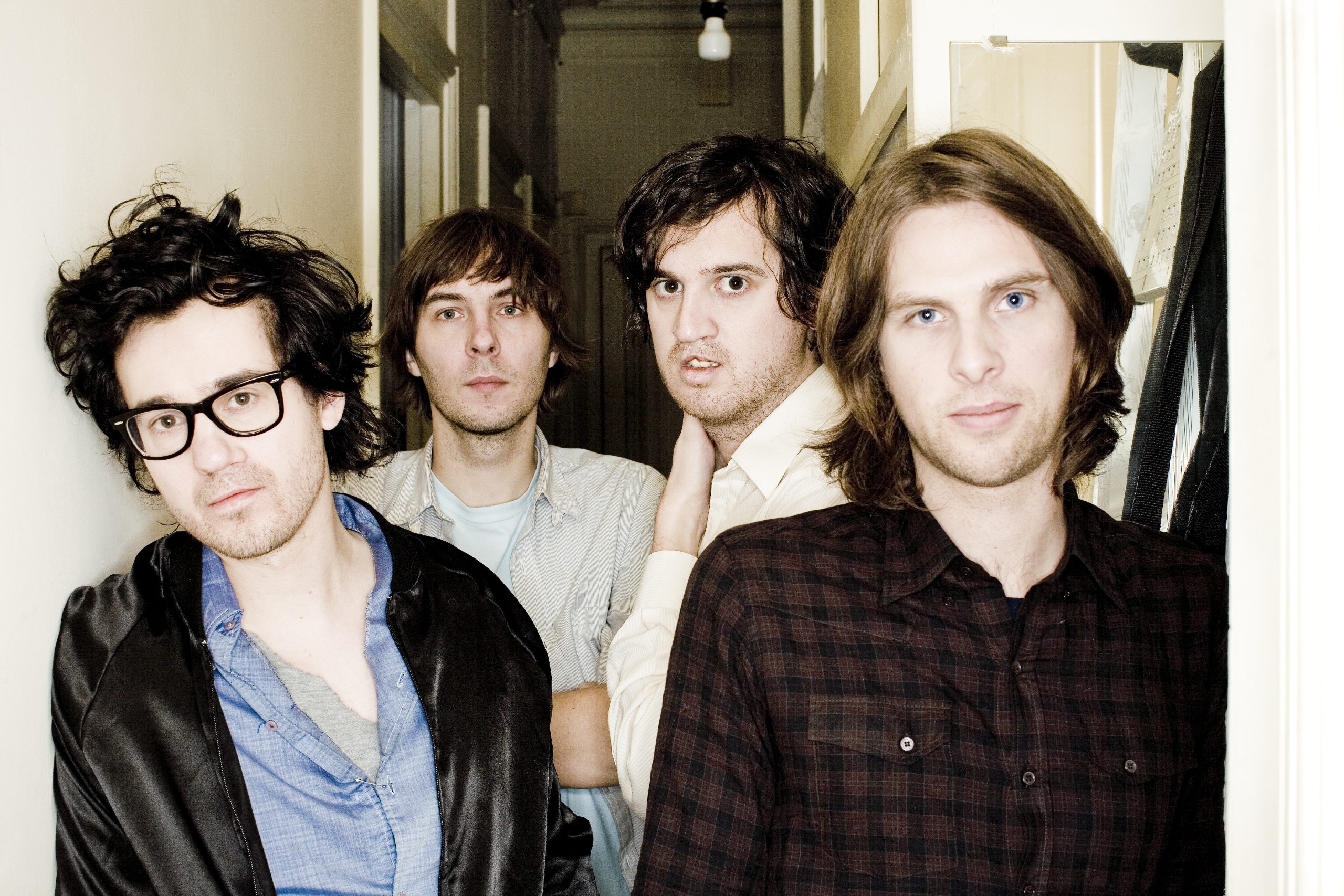Most people have become familiar with Ariel Pink via 2010’s excellent Before Today . I
Most people have become familiar with Ariel Pink via 2010’s excellent Before Today . It’s very much of the genre that’s come to be known as glow-fi; gauchely nostalgic for the stylistic excesses of music heard in half-lucid childhood memories, with production carefully tailored to sound like the audio track on a damaged VHS tape. But the important difference between Ariel Pink’s Haunted Graffiti and bands like Toro Y Moi or Washed Out his is that with Before Today, Ariel Pink (aka Ariel Rosenberg) actually raised the aural quality bar a couple of notches. His early records were lo-fi by default, the result of a self-set challenge to see how far musical ideas could be taken on brutally limiting equipment.
His very first recording set-up shows that this philosophy of limited means goes a long way back. “I had a bass guitar back when I was in high school. I had a pair of headphones and I would plug into a delay pedal or just a pedal of some sort, and then record directly onto tape using the headphones as a microphone.” Given that his early work harbours the feel of a radio station pushed to the absolute extremities of the passively tinny AM spectrum, this comes as no surprise. “Not many people know that there are microphones in headphones,” Rosenberg goes on.
“You can speak into the earpiece and it’s just a very low channel, so there’s all this hiss. Basically it’s just a very low volume recording. You have to crank up the stereo really loud if you ever want to hear anything. I wouldn’t even amplify the bass,” he continues. “I’d play the bass on my bed acoustically and I’d put the headphones right next to the bass, and try and get some kind of signal. So: very, very, very crappy. Humble beginnings,” he chuckles.
It’s easy to forget that many a great pop musician has shared in this humility, starting on a cheap guitar in their bedroom. That musos can cling to this simplicity is both the beauty of bedroom pop, and its curse; the subjective indulgence can mean the quality of the music never advances beyond the naivety of its genesis. But Rosenberg insists that determination is all you need. “The longer you do it, the more likely [it is] that you will actually stumble on your own voice. There’s nothing to do with abilities, but it does take preservation, it takes commitment, it takes… somebody being realistic at the outset, and [just] doing it.”
Something that distinguishes Ariel Pink’s Haunted Graffiti from acts of a similar ilk is Rosenberg’s sincerity. It’s not hard to hear past the aesthetic ruse of many glow-fi acts; despite the bewildering incongruity of the influences he wears on his sleeve, from prog to freak psych to FM cheese, Ariel Pink means what he plays. “Retrolicious is what I call it. It is a survey of music that I’ve come to know and love at various points in my life, just all melded together,” he says. “I never wanted to operate within a scene, or any kind of passing fad. It’s a bigger canon that I’m trying to pull from.
“I don’t want to be a ‘prog band’, I don’t want to be a ‘pop band’. I see myself as an experimental composer, and an artist in the classical sense, but that’s me being extremely… modest.”
That Rosenberg thinks of himself as a composer doesn’t come as a surprise. The unsettled/unsettling façade of his earlier albums make them feel like distant relatives of the first few released by Frank Zappa’s Mothers Of Invention; although he doesn’t share Zappa’s iconoclasm. “I really have to say it’s a sincere pursuit on my part,” explains Rosenberg. “Even if it sounds cynical, there’s very little cynicism in why I do it. I probably take myself way too seriously, ultimately.”
To find this degree of honest sincerity in someone who could so easily perceived as a diehard cynic is enormously refreshing. Rosenberg feels compelled to set himself and his art aside from the posturing and pretence that accompanies much contemporary music. “I think there is a lack of creativity and a lack of vision on the part of the musicians. I think there’s a lack of good role models out there. Everybody wants to be the Rolling Stones, you know?” He shrugs. “Rolling Stones overload! Everyone wants to be a rockstar. And be a boozer. Loser.”
In addition to this active unwillingness to put up with rock cliché’s, he also shares a work ethic with Zappa. Before Today is the most recent of a literally countless number of releases. It’s not easy being so prolific.
“I perpetually have writer’s block these days,” he sighs wryly. “It’s ok though, because I spend so much time rehearsing and performing with a band, going over stuff I’ve already written and fine tuning it for live performance, that it’s a welcome distraction from my artist block. It definitely doesn’t come like it used to,” he admits anxiously.
“I was really desperate, when I was younger, to be heard – so I was really willing to check everything, just to do things my own way. Those times I’m really proud of, because I was really inspired, and I knew it back then, and I took advantage of that… I want to go back there. I take my time a little bit now; I don’t just rush into recordings or anything.
“I want to make things sound good, so time is necessary. I’m happy to go at a slower pace.”
ARIEL PINK’S HAUNTED GRAFFITI play the LANEWAY FESTIVAL on Saturday February 5 at The Footscray Community Arts Centre along with Foals, PVT, Menomena, Beach House, !!!, Warpaint, Yeasayer and more. It’s sold out. Luckily, they also play The Hi-Fi on Thursday February 10 with Pikelet and Lost Animal. Tickets from thehifi.com.au. B efore Today is out now on 4AD / Remote Control
LUKE TELFORD

